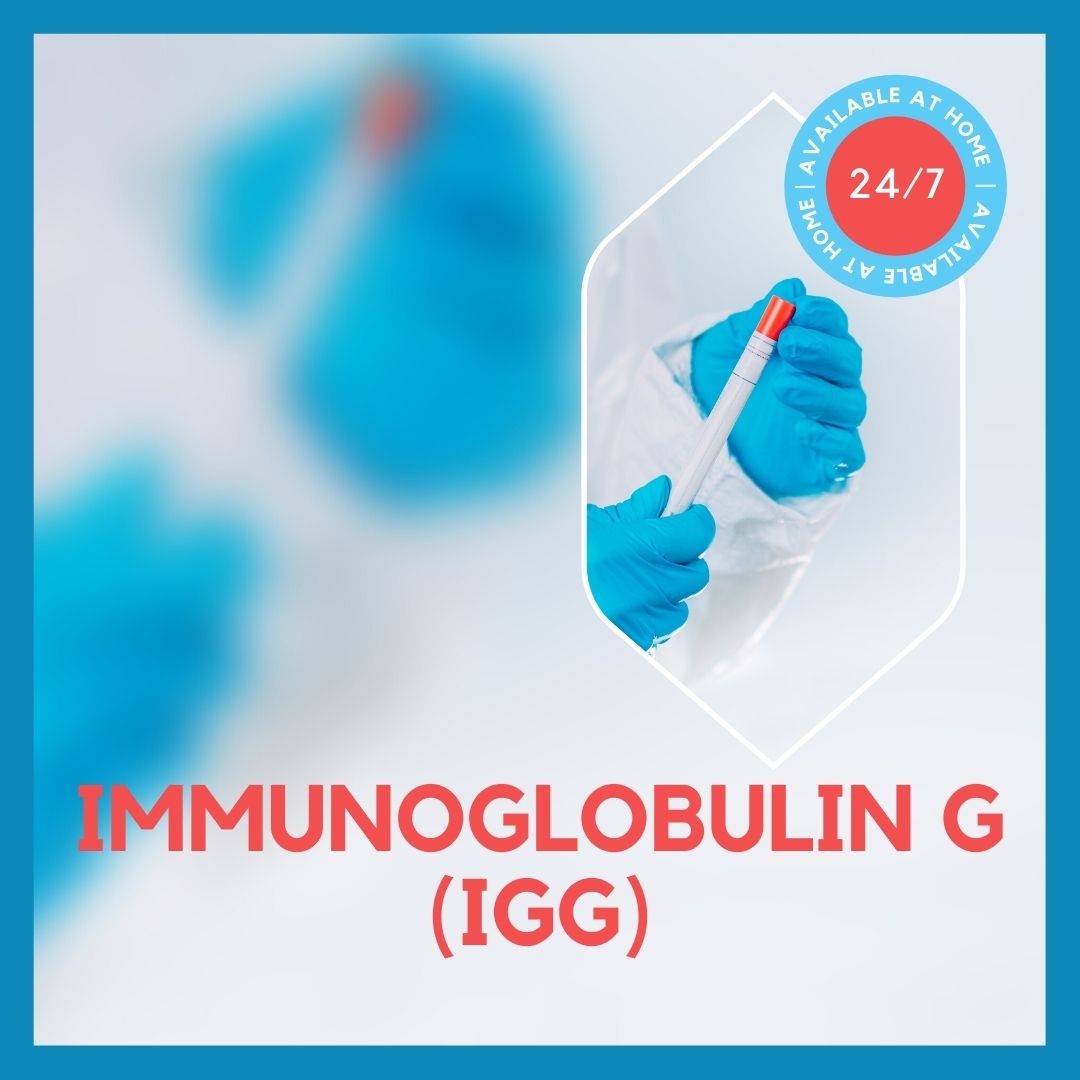Clinical Significance
Immunoglobulin G (IgG) also known as antibody, is a glycoprotein produced by white blood cells. It is a crucial aspect of our immune response system as it specifically identifies and binds to antigens such as viruses and bacteria and aid in their destruction. IgG is a major class of immunoglobulin that provides primary protection against local and systemic infections of the lower respiratory tract. IgG test measures the level of immunoglobulin G in the blood. Analyzing IgG provides valuable insight into the highly complex humoral immune response. During the initial infection or antigen exposure, specific IgG antibodies are formed, which increase a few weeks later, then decrease and stabilise.
su_spoiler title=”Technique” open=”no” style=”default” icon=”plus” anchor=”” anchor_in_url=”no” class=””]
NEPHELOMETRY
[/su_spoiler]
[su_spoiler title=”Who Prescribes” open=”no” style=”default” icon=”plus” anchor=”” anchor_in_url=”no” class=””]
IGeneral physician, General Medicine, Immunologist
[/su_spoiler]
[su_spoiler title=”Reporting Tat” open=”no” style=”default” icon=”plus” anchor=”” anchor_in_url=”no” class=””]
12
[/su_spoiler]
[su_spoiler title=”Sample Type” open=”no” style=”default” icon=”plus” anchor=”” anchor_in_url=”no” class=””]
SERUM
[/su_spoiler]
[su_spoiler title=”Fasting” open=”no” style=”default” icon=”plus” anchor=”” anchor_in_url=”no” class=””]
N
[/su_spoiler]





Reviews
There are no reviews yet.